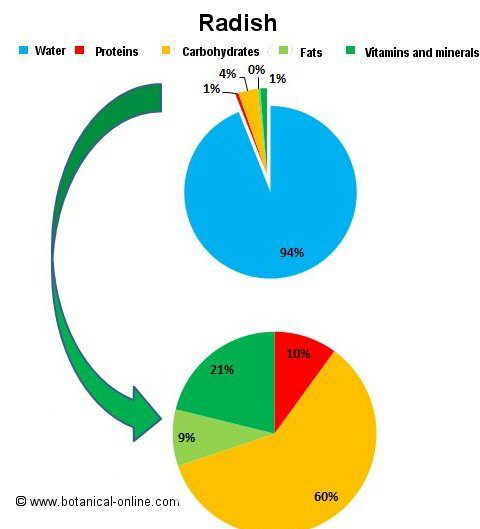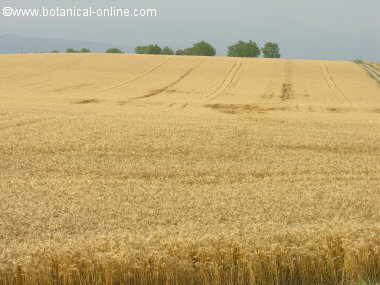Contents
What benefits do radishes provide?

Red radishes

White radishes
What are the main nutrients of radishes?
As an energy source, 100 grams of radishes give us 20 Kcal.
Their proportion of nutrients is divided into:
- More than 94% is water.
- A 0.54% fat.
- About 0.6% of protein.
- Nearly 4% of carbohydrates.
- A 1.6% fiber.
Vitamins and minerals in radishes
Radish is rich in potassium and calcium, but it also has small amounts of magnesium, phosphorus, iron, zinc, selenium, copper and sodium.
Radishes contain a lot of vitamin A, vitamin C and vitamin B9. They also have small amounts of other B vitamins
Radishes composition

Nutritional characteristics of radish
- It has a high water content.
- It provides little energy.
- It contains little fat, but of high quality and with many health benefits.
- It has a low protein content.
- It is low in carbohydrates, especially starches.
- It has a moderate-fiber content.
- It helps to remove toxins from our body, because it contains potassium.
- Because of its calcium content, it maintains the balance of the formation of strong bones.
- Containing B vitamins, it helps us to get energy from fat, protein and carbohydrate intake to properly grow and maintain our defenses in good condition.
- It protects the skin and helps keep it healthy, because of vitamin A.
- It protects us from colds and helps heal wounds, because it contains vitamin C.
Radishes in the kitchen:
![]() More information about other foods and nutrition.
More information about other foods and nutrition.
This article was endorsed by Elisenda Carballido - Dietitian nutritionist. Postgraduate in Phytotherapy and master in Nutrition and Metabolism.








